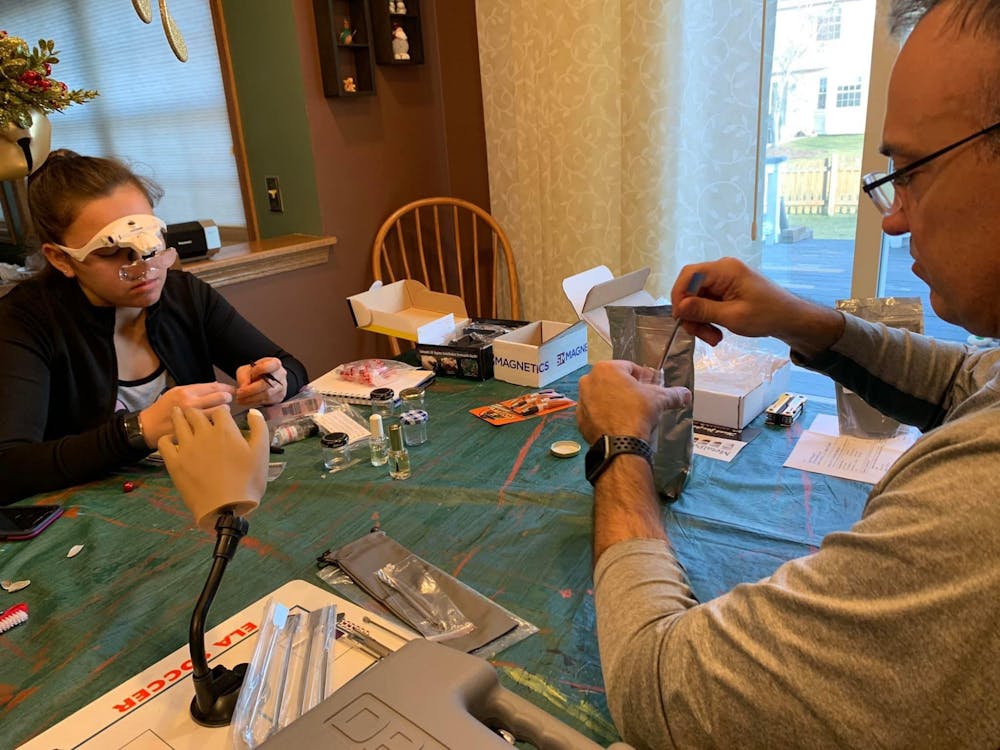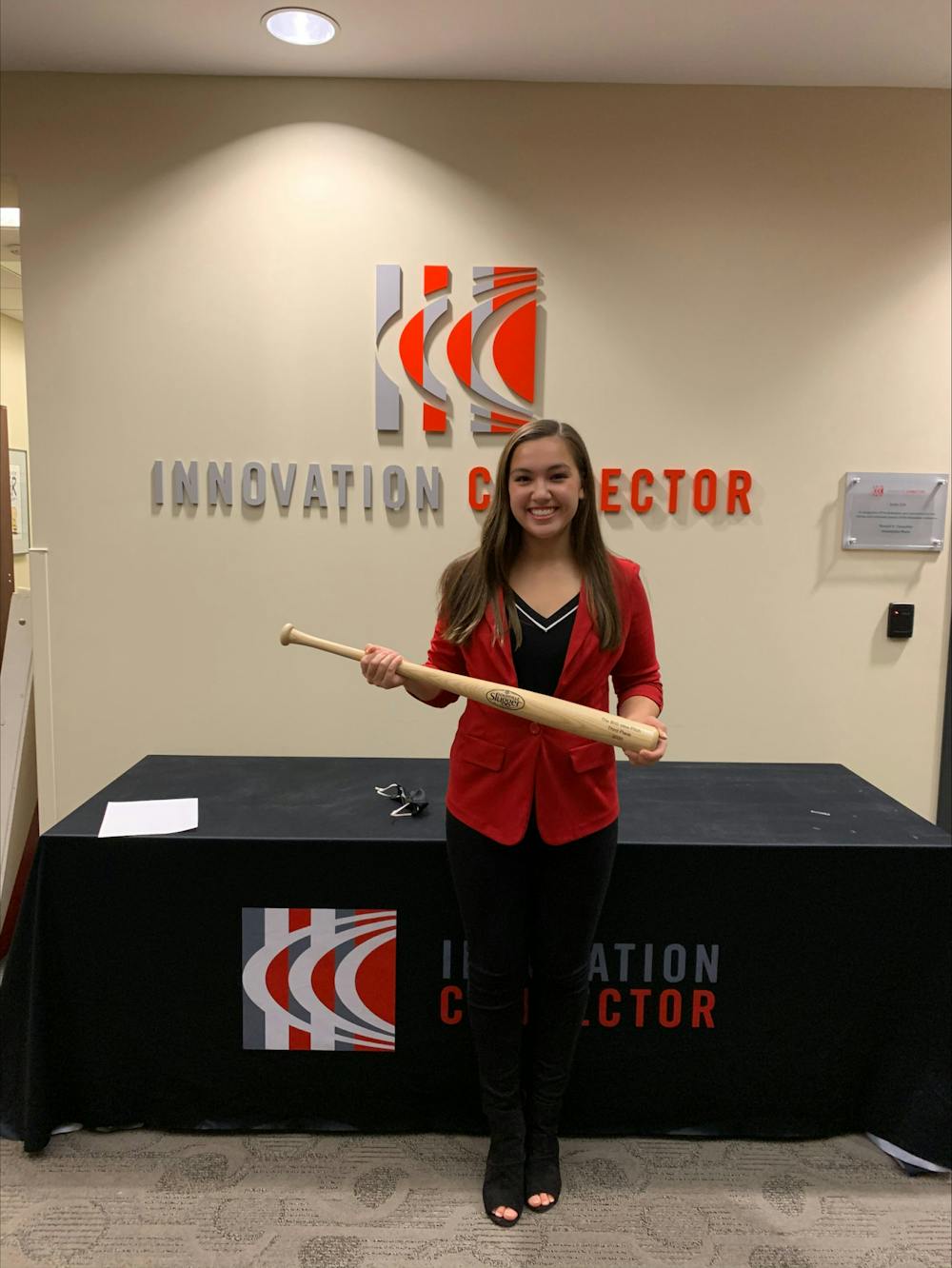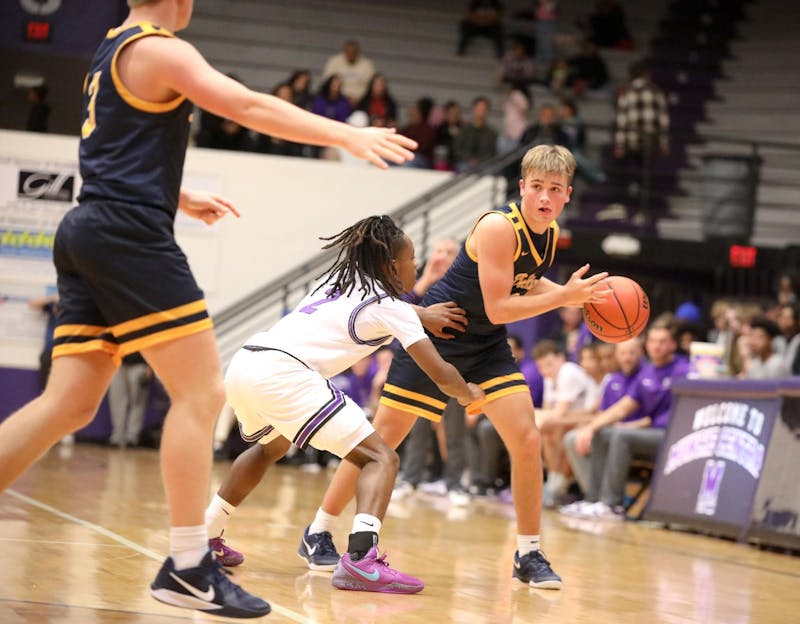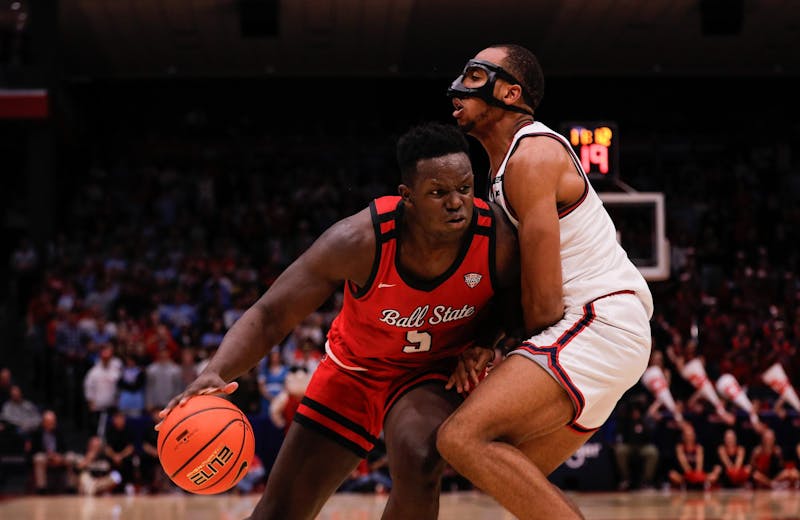Seagraves doubted himself at first, but he knew taking the risk to apply for the grant would be worth it and that the process would teach him a lot. He said he spent more time on the application than any paper he’d ever written for school.
“[The Pre-Seed Fund has] been a huge help so far in terms of just saving me time [and] effort, and it allows me to use some of that time being saved to apply it to the things that … require more of my attention to kind of take my business to the next level,” Seagraves said. “And so I'm really thankful for that. It’s been a game changer.”
Teah Mirabelli, fourth-year theatre student, also grew from this experience. She won the grant in the spring 2021 semester for her magnetic nail business. Mirabelli received approximately $1,000, but her budget was allocated toward getting safety equipment and the pieces she needed to build her prototype.
Although Mirabelli enjoyed being able to act like a “little scientist” for a while, she realized she didn’t have the chemical engineering knowledge to go any further with this business. The grant helped her to figure this out before she invested a lot more money and resources into making her product.
“I think as far as I could go, it was successful for me,” Mirabelli said. “It was really cool, and … I'm extremely grateful to the Pre-Seed Fund and to Ball State for allowing me to have the opportunity to try and figure that out for myself, and … even though it didn't fully work out, it was still very telling, and I learned a lot.”
She is now using the knowledge she learned through this experience to pursue a music arrangement business for the acapella community.

Teah Mirabelli, fourth-year theatre major, and her dad work on creating magnetic nails for her business. Mirabelli won safety goggles along with other materials through the Entrepreneur Center’s Pre-Seed Fund, spring 2021. Kathy Mirabelli, Photo Provided.
Along with Mirabelli, Gotceitas, second-year criminology major, received money from the grant to get materials to make his product: fishing baits. Friggin Fishing is the business Gotceitas shares with his younger brother, and five gallons of plastisol were listed on his budget.
He said he strives for quality and communication, a reason for wanting to get more marketing materials for his business.
“As a college student, sometimes you don't want to dish out some of the money … these things that we got, definitely will help us,” Gotceitas said. “But we weren't sure if we wanted to take our own money and invest it, so the grant helped us be able to reach that next point without using our own funds.”
According to the U.S. Small Business Administration, it costs about $3,000 to start a microbusiness, a type of small business with fewer than 10 employees.
The pre-seed grants provide students with an opportunity to grow or start their business without having to use their own funds, which can be difficult, especially for college students who have to pay their way through school.
Habegger, first-year entrepreneurship student, is using his video production business, Out The Box Media, to pay for college. He received $700 from Ball State for a fluid-head tripod and a website to promote his business.
Habegger said he has a “pay to win” mentality. He knows if he puts money into his business, he will be able to do higher quality work. He said his website has given him the opportunity to reach more people, and his new tripod moves smoother than his last, making him feel prouder of his footage.
“A big thank you to the entrepreneurship department for being willing to invest in younger people and help them reach toward their dreams,” Habegger said. “I really appreciate it. It was super helpful for me.”
Contact Lila Fierek with comments at lkfierek@bsu.edu or on Twitter @fierek_lila.





The Daily News welcomes thoughtful discussion on all of our stories, but please keep comments civil and on-topic. Read our full guidelines here.